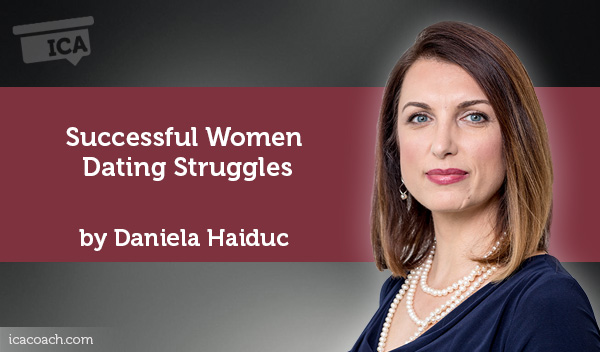
Coaching Case Study By Daniela Haiduc
(Transformational/Life/Business Coach, UNITED STATES)
1. Who are the main players in this case study
“Jane”, the coachee, is a highly educated, successful professional, currently working for a well-regarded university in the USA. She is in her mid-thirties, driven in achieving her goals, a passionate advocate for animals, and an overall independent, intelligent, and caring individual.
2. What is the core problem or challenge you applied your coaching skills to?
Jane was struggling with her dating life, having just come out of a short-term relationship, one of a series in the last few years. She noted she felt increasingly discouraged with each of these relationships and that she noticed a pattern for them, which made her believe she will never be accepted by a partner for who she is. As a result, Jane was describing herself as “damaged goods” and was in a dis-empowered and abandonment state. She described feeling pressure from others to find another partner soon, despite some beliefs she had about wanting to take a break from dating to reassess what she wants and what isn’t working for her.
Jane tried to open herself up to others; however, she didn’t believe people were truly listening to what she had to share or that they were eager to offer advice based on their own experiences. She resisted this unsolicited advice, as she believes that each individual is unique and that everyone’s issues and therefore solutions for these issues are also different.
2. What specific coaching skills or approach did you use in this case?
Having built trust and rapport with Jane over the years, I used that foundation to further assure her through powerful questions and intent listening, that I was there to support her in each of our sessions. Active listening truly contributed to a higher level of intimacy and increased trust. This was particularly important due to her prior experiences in talking with others and not feeling heard.
Visualization, acknowledgment, intent and creating action were other skills that I applied in sessions with Jane.
3. Explain your process in detail
I first started by assuring Jane that I was there to support her, and not to give advice or judge anything she wants to share with me. She accepted that she was not in a good place and that she would love to have me as her coach as she navigates this stage in her life. In the beginning, I asked Jane more questions around her current state, and we then moved onto an underlying belief of hers that was influencing her feelings of rejection and inadequacy. She shared that she believed all of her future relationships are deemed to fail once she starts talking about her family life, having had a challenging childhood. She referred to herself as “damaged goods” and, using her language, I asked whether that is something she sees herself as. That is one example of a shift in perspective that the client had over the course of our sessions. Creating awareness and starting to release judgment of herself and others were significant steps that the client took in the first sessions where sharing observations and noting her use of certain words, or tone of voice turned out to be helpful tools in making progress. Later, we explored what she envisions for her life going forward, and talked about actions she would take in the short term, that would set her up for success. We then discussed her support structures and how she can communicate her own desires for her future to family and friends that were pressuring her to “move on”.
4. What were the results of your process?
Jane decided to take a break from dating and refocus on herself for now. She feels happier and “lighter” having left the external pressures to find the next partner behind. She also decided to take some time and pursue another advanced degree as a way to invest in herself. I believe the coaching sessions we had were effective, knowing that I could provide a safe space for Jane to talk about some deep feelings she had, in a time she wasn’t sure where to turn to. Based on her feedback, Jane’s attitude towards herself and dating, as well as her relationship with people around her have improved as a result of our sessions and her subsequent work.
5. If you could approach this problem again, what would you do differently?
The only thing that I haven’t had a chance to do yet is exploring further whether going back to school is a way of avoiding rejection for Jane.
6. What are the top 3 things you learned from this experience?
a) People really want to be heard and can struggle with deep feelings of frustration when trying to discuss important issues to them with others who aren’t actively listening.
b) Issues in one’s childhood can impact not only how they see themselves but also how they believe others are seeing them. At times, simply repeating a client’s words regarding themselves can create a powerful realisation on how they perceive themselves.
c) Everyone needs a coach, at least from time to time. Coaching proves to be an amazing experience of breakthroughs and action building progress for the client, but it first and foremost is a space where they can truly feel they are being heard.